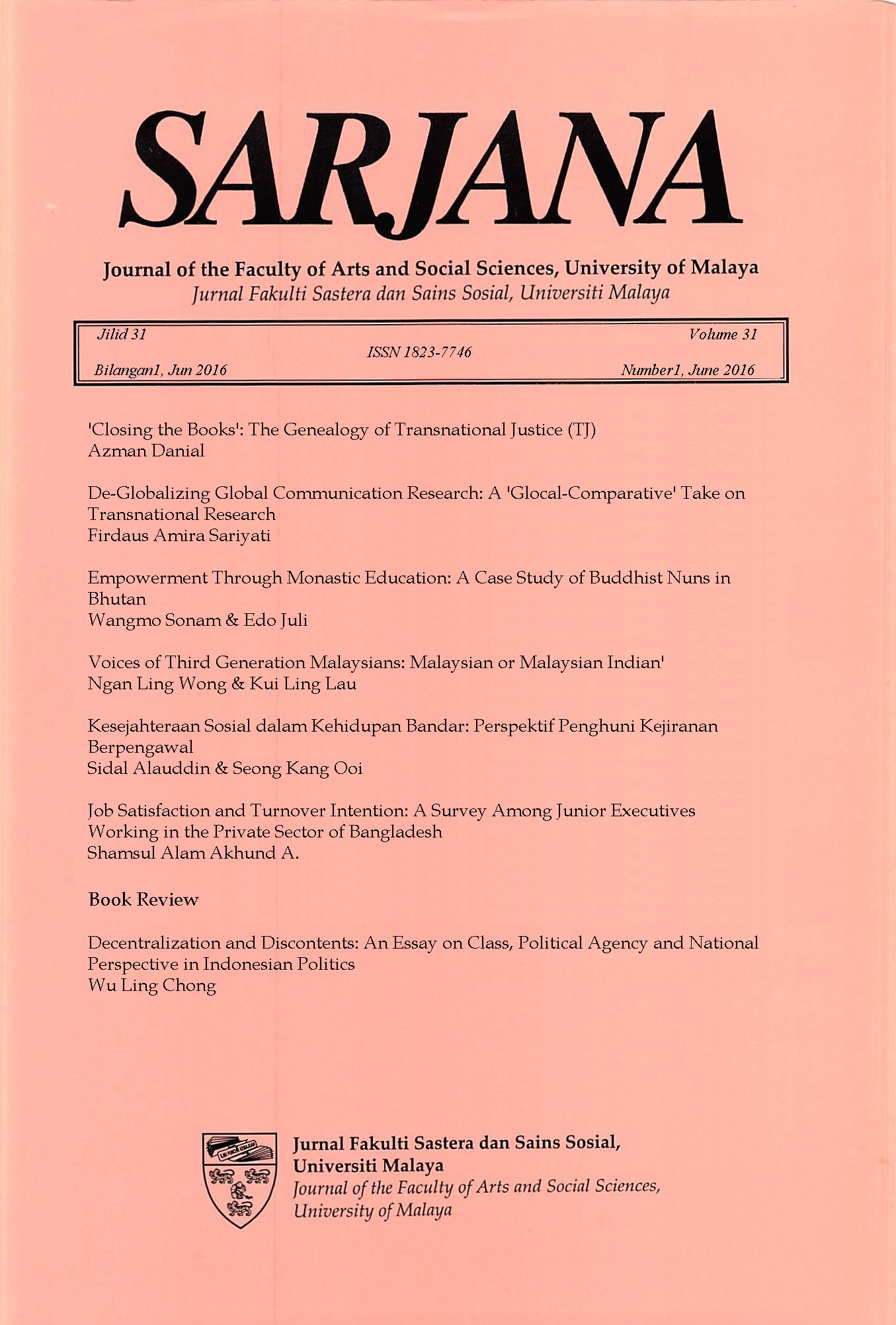Empowerment Through Monastic Education: A Case Study of Buddhist Nuns in Bhutan
Main Article Content
Abstract
Bhutanese nuns have for centuries remained as bystanders and watched the male clergy progress intellectually, spiritually, and materially. Where monastic education is concerned, Bhutan has traditionally educated its boys through a systematic education on Buddhist philosophy. Bhutanese nuns on the other hand have been deprived of monastic education and continue to be destitute as the country's sweeping educational reforms have yet to permeate into the monastic institution. The article examines Bhutanese nuns' access to religious instructions, especially monastic education in Buddhist philosophy which is the foundation of any VajrayÄna Buddhist practice. It also analyses whether Bhutanese nuns are sufficiently empowered to be able to practice the VajrayÄna Buddhist spiritual path and attain realisation. It was found that the lack of access to the full spectrum of monastic education coupled with the overwhelming power of tradition has severely hampered the spiritual and intellectual progress of the Bhutanese nuns. Grounded in the Feminist Buddhist approach, this article aims to highlight the issues surrounding Bhutanese nuns' intellectual and spiritual progress with a view to invoke policy changes on women and religious practice in the country.

